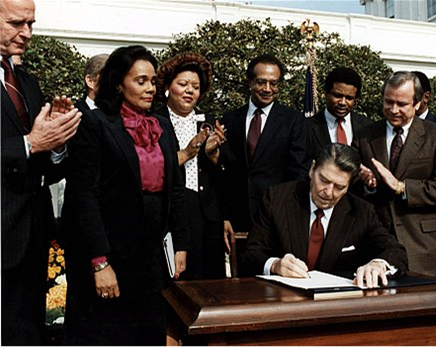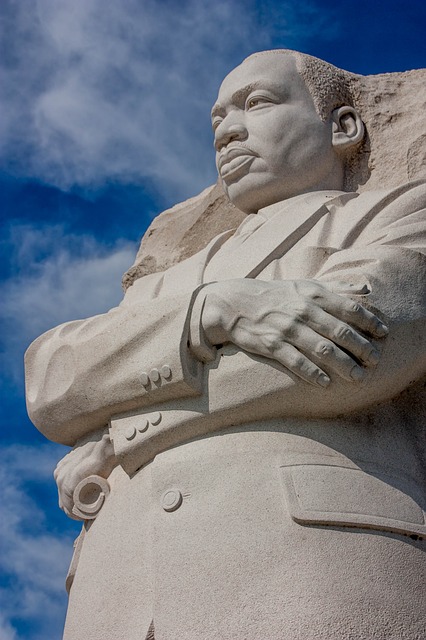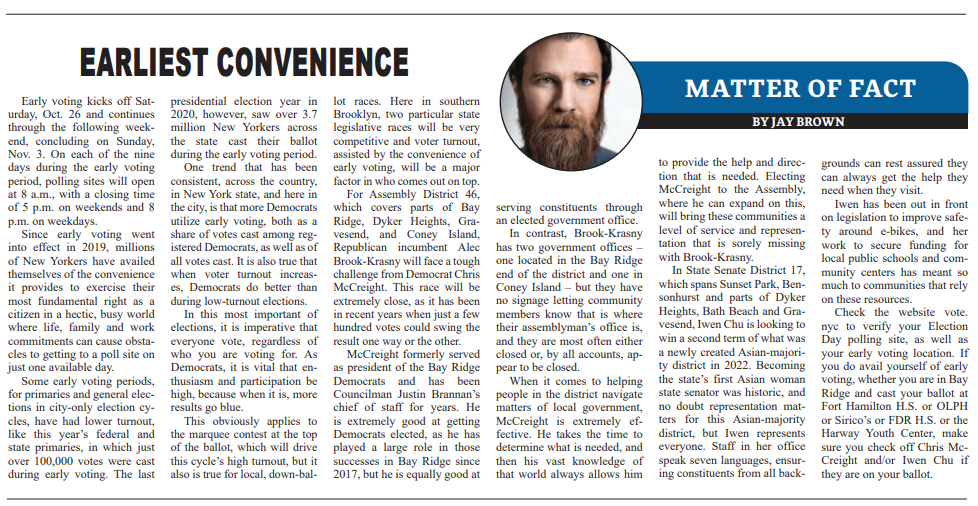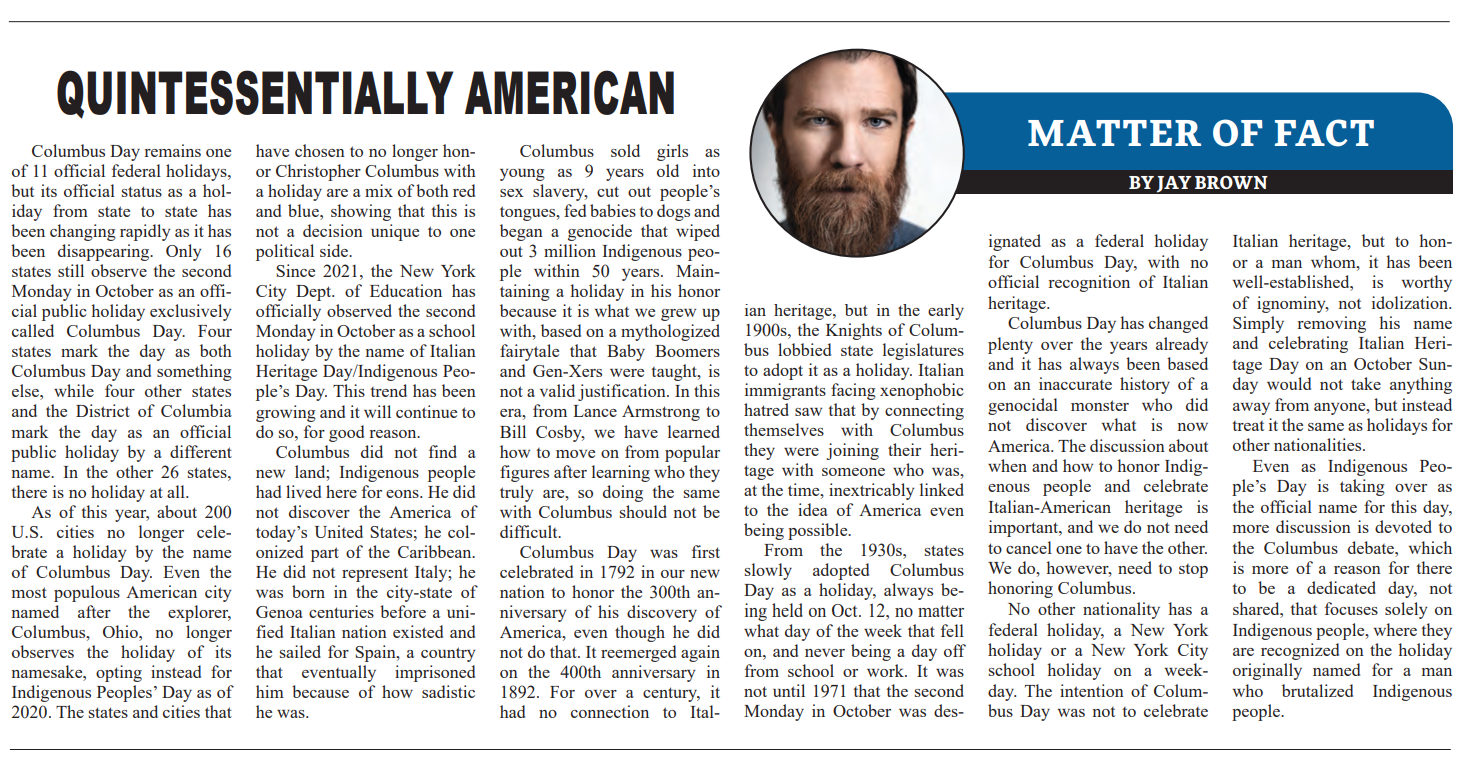This column, from the weekly opinion piece MATTER OF FACT, first appeared in the Home Reporter and Spectator dated January 17, 2020
Most Americans in every state will be off from work Monday, January 20, in observance of Martin Luther King Jr. Day. For years, many states chose to completely ignore the namesake of this holiday completely for their version, while others used (or still use) the annual occasion as an even greater slight.
Fifteen years after Dr. King’s assassination, President Reagan signed the holiday into law and it was first observed three years later, in 1986. It should be noted that Reagan opposed the idea, but when the bill was passed in Congress by an overwhelming, veto-proof margin, he was powerless to stop it.
Several states, however, would spend years equivocating on their recognition of the federal holiday and it wasn’t until 2000 that all 50 states officially recognized Martin Luther King Jr., at least in some fashion, on the third Monday of January.

For years, Idaho and New Hampshire called the holiday by other names that didn’t cite Martin Luther King Jr. at all, instead choosing generic labels of “Civil Rights” or “Human Rights” for their official state observances.
In the years following Martin Luther King Jr. Day becoming a federal holiday, Arizona went back and forth on the matter, until voters finally approved a 1992 referendum creating Martin Luther King Jr./Civil Rights Day. Their inability to commit to the holiday led the NFL to pull Super Bowl XXVII hosting duties from the state.
Until 2000, employees of the state of South Carolina had to choose whether they wanted to observe Martin Luther King Jr. Day or one of three Confederate holidays. The idea of making citizens choose between Dr. King and the Confederacy may seem about as insulting to his legacy as one can fathom, but four other southern states took the indignity a step further.
In these states, the day honoring the United States’ greatest African-American civil rights hero would simultaneously commemorate a man who deserted our country to take up arms against the United States in an effort to maintain his right to own African-Americans.
Alabama, Arkansas, Mississippi, and Virginia decided that their observances would pay tribute to the birthdays of both Martin Luther King Jr. and Robert E. Lee. In these states, the day honoring the United States’ greatest African-American civil rights hero would simultaneously commemorate a man who deserted our country to take up arms against the United States in an effort to maintain his right to own African-Americans.
In 2000, Virginia finally removed Robert E. Lee’s name from the holiday, while it took Arkansas until 2018 to follow suit. Yet, neither state actually eliminated their Confederate commemorations altogether. Instead, they just moved them to other days on the calendar.
Two states, which could be said to have been the primary battlegrounds of the civil rights movement of the 1950s and 1960s, maintain shared King/Lee designations to this day.
Alabama was where Rosa Parks’ defiant stand against segregation led to the Montgomery Bus Boycott, but Montgomery was also the literal birthplace of the Confederacy when southern states formed their new slaveholding republic there. Alabama was where civil rights marchers were brutally beaten on the Edmund Pettus Bridge in Selma, but Selma was also the site of one of several Civil War battles commanded by the Confederacy’s Nathan Bedford Forrest, an early leader of the Ku Klux Klan.

Mississippi was where 14-year-old Emmett Till was brutally murdered and where Civil Rights leader Medgar Evers was gunned down in his carport as he returned home to his family, but was also the second state to secede and the home of Confederate President Jefferson Davis.
Alabama and Mississippi featured prominently in both our Civil War and Civil Rights movement. This week, they once again recognize Dr. King and Robert E. Lee together. Both men, on the same day. One man who gave his own life, fighting to bring civil rights to African-Americans, and another man who took other’s lives, fighting a civil war to deny rights to African-Americans.
Southern Brooklyn’s Fort Hamilton still has a street named General Lee Ave. Since Lee only attained the rank of general in the Confederacy, this U.S. base commemorates the period of Lee’s life when he killed U.S. soldiers as he fought to preserve slavery. On this Martin Luther King Jr. Day, let’s honor a man who deserves it and renew our efforts to remove honorifics for those who do not.




